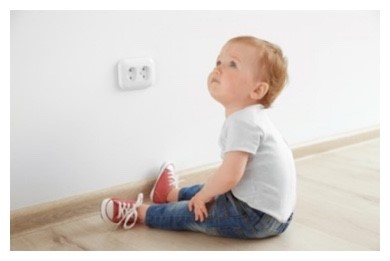Steps For Keeping Your Children Safe Around Home Electrics
Electronics have given people a better standard of living. New gadgets and software are constantly released to make life more entertaining and convenient.

That said, every innovative technology introduced comes with its own list of safety concerns. Unfortunately, freak accidents can occur almost from nowhere, especially to those who aren’t as careful handling these devices as they should be.
If adults can occasionally misjudge things and get into hazardous situations with electronics, then kids are likelier to do the same. As a parent, you should do everything you can to prevent any chances of dangerous mishaps.
Here are the steps you should follow to help you childproof your home’s electrics.
Research Local Electricians
Some electrical hazards and emergencies can be too big for homeowners to manage alone. Professionals will need to be called in these situations, and you must contact them promptly.
Research local electricians ahead of time so you’re sure there’s a service you can call when in need. MyBuilder has helped its users connect with electricians in London and many other UK areas. All you need to do when the time comes is post your job, receive trades person responses, and browse their profiles to see who’s best suited to the task. You can also check the work history of proposed electricians and review the feedback they’ve had from past clients.
When emergencies happen, indecisiveness can drag out the period your home is unsafe, leaving your child exposed to dangers longer than necessary. Get well-researched ahead of time, and hopefully, an electrician will be at your property fixing things quickly. Even if there’s no emergency, consult a professional before making substantial changes to your electrics. Otherwise, you might unknowingly create hazards. Whether you need electrical safety checks conducted, house rewiring completed, or new units installed, having one place to get everything sorted is a huge advantage.
Improve Cable Management Practices
Kids can be curious individuals. Their inquisitive nature can lead them into all sorts of different scraps, including those involving electric cables.
Try to be smarter about how you’ve arranged things. Conceal cables behind skirting boards, under carpets and rugs, or run it all behind heavy furniture. Even some computer desks are designed to prevent access to the back once they’re against a wall.
Of course, there may not be a need for as many cables to run through your house. In addition to saving money from unplugging certain electronics, you’d also prevent your child from messing around with the cables. If something’s not in use, switch it off, unplug it, and stash the plug and cable away until you need it again. TVs, game consoles, and speakers can all fall under these measures.
Adopt No-Entry Policies
There are some areas of your home that very young kids shouldn’t be in at all. Garages, sheds, or even work office areas should all be child-free zones.
Having these policies in place means your kids won’t blunder in and interact dangerously with all the electrics that are functioning away. Add locks to the doors, keep them closed when you’re inside, and generally discourage your child from entering while they’re young.
That said, it’s important not to become too reliant on this precaution. You should still unplug and stash away cables of your electronics in these areas when not in use. After all, who knows if you or someone else you live with will forget to close and lock doors?
Talk to Your Kids
Few household-wide procedures can be implemented without the cooperation of your kids. Moreover, children are using technology at increasingly younger ages. The sooner they know the best practices around using electrics responsibly, the better.
Have an honest discussion with your kids as soon as they’re old enough to use technology. Instruct them to follow your example around switching off and unplugging items. Ensure they do the latter by grasping the plug and not by pulling on the cable. The more you involve them in these measures, the more likely it is they’ll take them seriously and comply.
The overheating of electrical appliances can present dangers too. Instruct your kids not to overload multi-use sockets. Too many heat-producing appliances being used in them will cause surges and overheating. Teach them that plenty of air should be circulating around electrical units and that dust on an electrical unit should be cleaned to prevent overheating. They should inform you if cooling systems aren’t working or electrical appliances are unusually hot to the touch. Many of these measures amount to basic maintenance. However, technology can make some younger users feel entitled and forget the care required to keep everything working and safe to use. Problems with electrics can be prevented if everyone knows what to look out for.
Conclusion
It’s not just you who has a role to play when keeping your children safe around home electrics. Tradespeople can offer professional help, and your kids should stay informed when they can. Do your best to embrace the teachable moments, and make electrical safety in your home a robust routine.